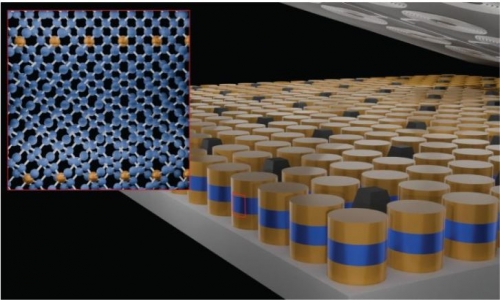


 4:3:43
4:3:43  2019-10-30
2019-10-30  913
913

Humans are constantly learning new things. This ability helps us to grow and adapt to new situations daily. But a new study suggests that different learning mechanisms actually shape how the brain stores memories.
As humans, we have not only survived, but thrived throughout time thanks to our ability to learn and adapt to new situations.
Learning itself is a complex process, and there are different types of learning mechanisms through which the brain stores new information and updates old information.
In general terms, there are two ways of learning that humans use to acquire new information in the long term.
One is by association, or through experience. This is when we learn new things incidentally, just because we happened to come across them, or because we are in a new environment that we are learning to navigate little by little.
The other one is learning by reinforcement. This is when we purposefully set out to learn new information — when we take a language course, for example.
A new study conducted by researchers from the Department of Experimental Psychology, the Wellcome Centre for Integrative Neuroimaging, and the Nuffield Department of Clinical Neurosciences — all in Oxford, United Kingdom — indicates that different learning mechanisms have links to memories stored in different parts of the brain.
The researchers add that not only do we store information differently depending on how we acquire it, but that it may be more or less easy for us to lose or change this information for the same reason.
The researchers report their observations in a study paper that appears in the journal Nature Communications.
The implications of the current findings
For this study, the research team recruited 27 participants aged 19–35 and used the data of 26 of these participants for analysis.
The participants agreed to take part in MRI scans while they completed learning tasks that offered a reward. During the MRIs, the investigators paid attention to any changes taking place in brain regions associated with learning.
Following these observations, the researchers found that different modes of learning — incidental versus goal-oriented — activated different neural pathways in the brains of the participants.
"We know that humans can learn in different ways," says first author Miriam Klein-Flügge. "Sometimes we learn simply by observing relationships in the world, such as learning the layout of a new town, or relationships between people," she adds.
"But another way to learn is by setting particular goals, like children learning to operate toys by trial and error."
Klein-Flügge continues, "This research shows that we have multiple networks in the brain that help us store learned knowledge or associations, which means that damage to one part of the brain will still leave alternative mechanisms available for learning."
The researchers also explain that the findings indicate that the brain can store information learned through reinforcement for a long time, while other types of information remain more available for updates.
"We also learned that some of this knowledge is very persistent, and the brain does not forget about it even when it becomes irrelevant, while knowledge acquired through an alternative learning mechanism is more flexible and can more easily be changed to new knowledge," notes Klein-Flügge.
When it comes to unlearning or forgetting information, the researchers also note that information acquired incidentally through associations is easier to discard than information acquired through goal-oriented learning.
"It is well known that it is good for our brains to continue to learn new things throughout life, which is why understanding the different ways in which we learn and store knowledge could be beneficial and help each of us to find out which way of learning suits us best." Miriam Klein-Flugge
Reality Of Islam |
|

For years,

New scienti

This is the

A computer
 9:3:43
9:3:43
 2018-11-05
2018-11-05
10 benefits of Marriage in Islam
 7:5:22
7:5:22
 2019-04-08
2019-04-08
benefits of reciting surat yunus, hud &
 9:45:7
9:45:7
 2018-12-24
2018-12-24
advantages & disadvantages of divorce
 11:35:12
11:35:12
 2018-06-10
2018-06-10
 6:0:51
6:0:51
 2018-10-16
2018-10-16
 7:6:7
7:6:7
 2022-03-21
2022-03-21
 12:47:1
12:47:1
 2022-12-20
2022-12-20
 4:25:57
4:25:57
 2023-02-11
2023-02-11
al-hussain (peace be upon him)
 10:18:1
10:18:1
 2022-09-21
2022-09-21
 3:18:29
3:18:29
 2022-12-24
2022-12-24
 1:16:44
1:16:44
 2018-05-14
2018-05-14
 2:5:14
2:5:14
 2023-01-28
2023-01-28
 5:41:46
5:41:46
 2023-03-18
2023-03-18
| LATEST |